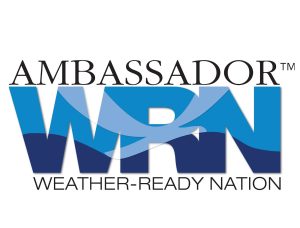About
Overview
The University of North Carolina at Charlotte (UNC Charlotte) Office of Emergency Management (OEM) is responsible for the planning and coordination of the Institution’s operational emergency preparedness, response and recovery from a disaster. OEM adheres to a comprehensive all-hazards, whole community approach to incident management based on the Federal Emergency Management Agency’s (FEMA) National Incident Management System (NIMS). OEM is tasked by the Chancellor’s Letter of Promulgation with the following responsibilities:
- Developing and maintaining all institutional emergency plans, which include the following:
- Campus Emergency Operations Plan (EOP) including, but not limited to, the annexes and appendices below:
- Functional Annexes
- Hazard Specific Annexes (severe weather, active shooter, etc.)
- Emergency Operations Center (EOC) Guidebook
- Policy Group Handbook
- Family Assistance Center (FAC) Plan
- Crisis Communications Plan (CCP)
- Campus Emergency Operations Plan (EOP) including, but not limited to, the annexes and appendices below:
- End-to-end management of the Institution’s business continuity program
- Business Continuity Base Plan (BCP)
- Departmental Continuity of Operations Plans (COOP)
- Strategic oversight and hazard-specific day-to-day management of the Institution’s emergency alerts system, NinerAlerts. This includes partnering with Business Affairs Communications on NinerNotices for non-emergency incidents and events.
- Responsibility for campus-wide emergency trainings, exercises and after-action reports
- Management of the Emergency Operations Center (EOC) and overall coordination of institutional emergency operational response
Vision
To build a prepared and resilient Niner Nation, increase and maintain the University’s resilience to disasters, and continue to be an innovative industry leader in higher education emergency management and business continuity planning.
Mission
The mission of the Office of Emergency Management is to maintain an all-hazards, comprehensive emergency management program that adheres to the five mission areas of emergency management (prevention, protection, mitigation, response, and recovery). OEM’s priorities are to: (1) protect lives, (2) stabilize the incident, (3) protect University property, (4) protect the environment, and (5) the continuation and restoration of essential functions, education, and research programs; before, during and in the immediate aftermath of a disaster.
The National Weather Service StormReady Program

The National Weather Service has designated 186 U.S. colleges and universities as StormReady. UNC Charlotte is the fifth UNC institution to be granted StormReady status.
StormReady is a nationwide community preparedness program that uses a grassroots approach to help communities develop plans to handle all types of severe weather, from tornadoes to tsunamis. The program encourages communities to take a new, proactive approach in order to improve local hazardous weather operations by providing emergency managers with clear-cut guidelines on how to improve their hazardous weather operations.
To be officially StormReady, a community must:
- Establish a 24-hour warning point and emergency operations center.
- Have more than one way to receive severe weather warnings and forecasts and to alert the public.
- Create a system that monitors weather conditions locally.
- Promote the importance of public readiness through community seminars.
- Develop a formal hazardous weather plan, which includes training severe weather spotters and holding emergency exercises.
News Stories and Sources:
UNC Charlotte named a “Storm Ready Community”
List of NC Storm Ready Communities
http://www.weather.gov/stormready/
National Oceanic and Atmospheric Administration Weather-Ready Nation Ambassador Initiative
UNC Charlotte was accepted as a Weather-Ready Nation Ambassador in May 2022 and continues to strengthen its partnership with NOAA and the Niner Nation through this initiative. The University joins seven other UNC System schools to be accepted as a Weather-Ready Nation Ambassador.

The Weather-Ready Nation Ambassador initiative is an effort to formally recognize NOAA partners who are improving the nation’s readiness against extreme weather, water, and climate events. As a Weather-Ready Ambassador, our organization is committed to work with NOAA and other Ambassadors to strengthen national resilience against extreme weather.
To become a WRN Ambassador, an organization must commit to perform these four actions:
- Promote WRN messages and themes (use of communications toolkits as appropriate to your stakeholders
- Engage with NOAA personnel on potential collaboration opportunities
- Share your success stories of preparedness and resiliency
- Serve as an “Example” by educating employees on workplace preparedness and encouraging personal preparedness at home
News Stories and Sources:
Office Information
Facilities Management/Police & Public Safety Building
9151 Cameron Blvd.
Charlotte, NC 28223
704-687-7884
emergency@charlotte.edu